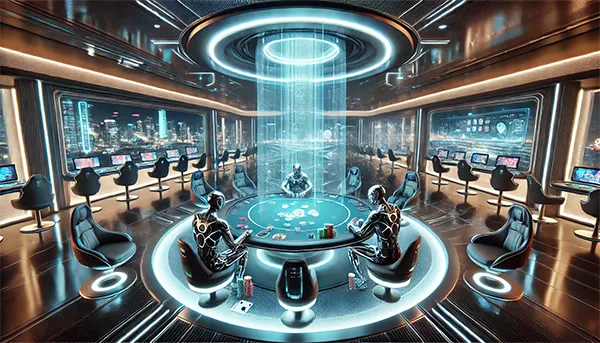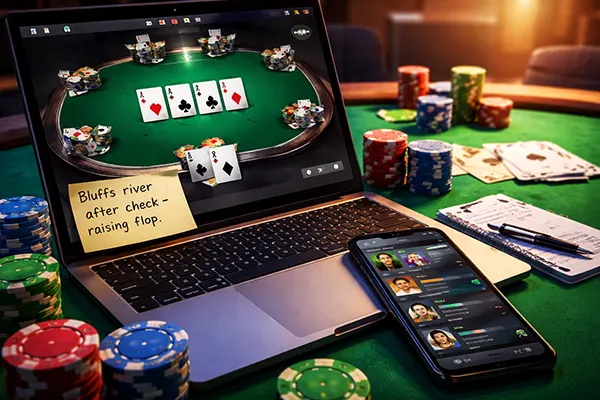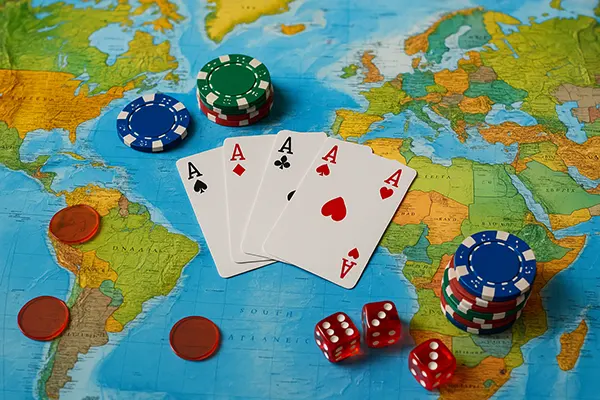
Metaverse and Poker: Future or Marketing Hype?
The integration of poker into the metaverse has become a hot topic in the gaming industry. With virtual reality (VR) and blockchain technologies evolving, the idea of immersive, decentralised poker rooms seems promising. However, is this the future of online poker, or merely a marketing trend that will fade over time?
The Rise of Poker in the Metaverse
The concept of playing poker in virtual environments has been around for years, but the metaverse offers a new level of interactivity. With VR poker platforms like PokerStars VR and Decentraland-based poker rooms, players can experience real-world interactions in a digital space. Avatars, digital assets, and social engagement contribute to a more immersive experience.
One of the key advantages of metaverse poker is the social aspect. Unlike traditional online poker, where players are limited to chat boxes, metaverse poker allows voice communication, body language cues, and real-time interactions. This creates a more engaging and realistic poker experience.
Furthermore, blockchain technology plays a significant role in metaverse poker. Smart contracts ensure transparent transactions, reducing the risk of fraud. Decentralised platforms also enable provably fair gaming, which is a major concern for many online players.
Challenges and Limitations
Despite the potential benefits, metaverse poker faces several challenges. One major concern is accessibility. High-quality VR headsets are expensive, and not all players are willing or able to invest in them. This limits the potential player base for metaverse poker.
Another challenge is the learning curve. While online poker is already well-established, adapting to VR poker requires new skills and adjustments. Players must navigate digital environments, manage avatars, and interact in new ways, which can be overwhelming for some.
Regulatory issues also pose a hurdle. Many countries have strict gambling laws, and metaverse poker platforms operating on decentralised networks may struggle to comply with legal requirements. Governments may impose restrictions, making it difficult for platforms to operate globally.
Technological Advancements in Virtual Poker
Technology is continuously shaping the future of online poker. With the metaverse, artificial intelligence (AI) and VR advancements play a crucial role in enhancing the gaming experience. AI-powered dealers, real-time voice recognition, and customisable poker environments are already in development.
In addition, 5G technology enables seamless connectivity, reducing latency issues that can affect gameplay. The combination of VR, AI, and high-speed internet creates a poker environment that closely resembles real-life casino interactions.
Another major innovation is the use of NFTs (non-fungible tokens) in metaverse poker. Players can own digital assets such as exclusive poker tables, custom avatars, and unique in-game items. These assets can be traded or sold, adding an economic layer to the metaverse poker ecosystem.
Security and Fairness Concerns
One of the biggest concerns in online poker is fairness. Metaverse poker platforms must ensure that games are free from manipulation and collusion. Blockchain-based random number generators (RNGs) offer transparency, allowing players to verify the fairness of each hand.
Security is another critical factor. With digital wallets and cryptocurrencies being widely used in the metaverse, platforms must implement robust security measures to protect users from hacking and fraud. Multi-factor authentication (MFA) and encryption technologies are essential for ensuring player safety.
Despite these advancements, some players remain sceptical about the security of metaverse poker. The decentralised nature of some platforms raises concerns about accountability and dispute resolution, as there may be no central authority overseeing operations.

Is Metaverse Poker the Future?
While metaverse poker presents exciting possibilities, its widespread adoption is still uncertain. Traditional online poker platforms continue to dominate the market, and many players prefer the convenience of playing on mobile apps without the need for VR equipment.
However, as technology advances and VR hardware becomes more affordable, metaverse poker could gain traction. Younger generations, who are more accustomed to digital environments and virtual interactions, may drive the growth of this new gaming format.
Ultimately, the success of metaverse poker depends on player adoption, technological improvements, and regulatory support. If these factors align, metaverse poker could revolutionise the industry. Otherwise, it may remain a niche market catering to a select group of tech-savvy players.
Final Thoughts
The metaverse offers an exciting vision for the future of poker, blending advanced technology with social gaming. However, significant challenges remain, from accessibility issues to regulatory concerns. While the hype surrounding metaverse poker is undeniable, its long-term success will depend on how well the industry addresses these obstacles.
For now, metaverse poker is an intriguing experiment rather than a full-fledged replacement for traditional online poker. As technology evolves, only time will tell whether it becomes the future of poker or just another trend that fades into obscurity.






